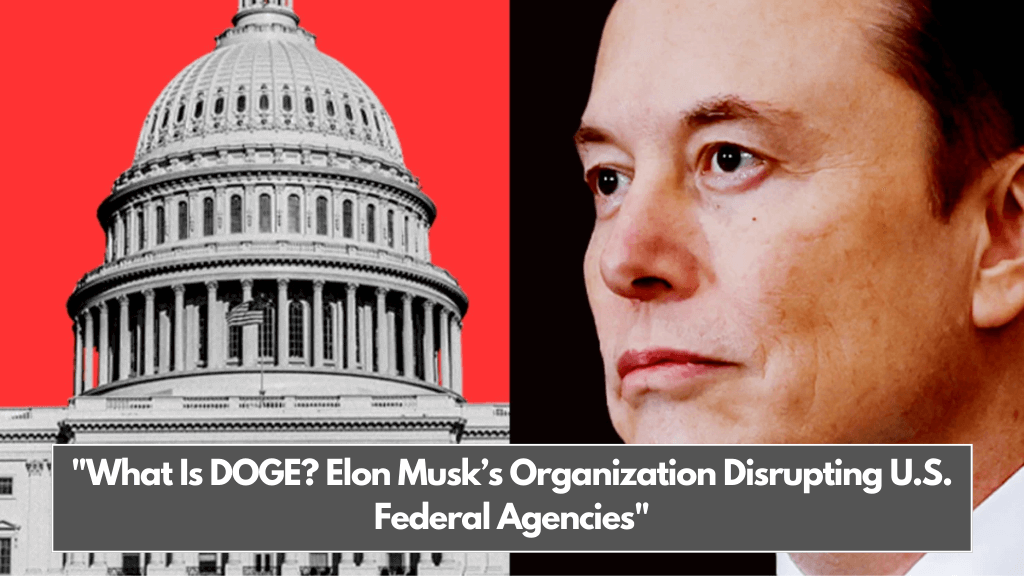The Department of Government Efficiency (DOGE), created by President Donald Trump and led by tech billionaire Elon Musk, has sparked widespread controversy and legal battles due to its sweeping changes to the federal government.
The department’s aggressive spending cuts and Musk’s unconventional methods have raised alarm among Democrats, government watchdogs, and privacy advocates.
What Is DOGE and How Did It Start?
DOGE, an acronym that coincidentally shares its name with the popular cryptocurrency Musk once championed, was established by Trump through an executive action on his first day in office. The department’s mission is to reduce federal spending and slash regulations.
Trump repurposed the United States Digital Service (USDS)—originally created by former President Barack Obama after the botched rollout of Healthcare.gov—and renamed it the Department of Government Efficiency. Musk, who was appointed as a “special government employee,” has taken charge of identifying ways to trim the federal budget.
Elon Musk’s Role in DOGE
Musk’s appointment as a special government employee allows him to work for the federal government without compensation. He has been given an office, a government email, and direct access to federal systems, making him one of the most powerful non-elected figures in the federal government.
During a rally at Madison Square Garden, Musk claimed he could cut trillions of dollars from the federal budget. Although he initially aimed for $2 trillion, he later told political strategist Mark Penn that a more realistic goal would be $1 trillion.
Musk has brought in a team of young engineers, mostly aged between 19 and 24, to help execute DOGE’s mission. However, critics have questioned the team’s lack of experience in government operations and their access to highly sensitive data.
Controversies Surrounding DOGE’s Actions
1. Access to Sensitive Treasury Systems
DOGE’s actions recently made headlines after reports revealed that Musk’s operatives gained access to the U.S. Treasury Department’s payment systems, which handle trillions of dollars in federal disbursements, including Social Security and Medicare payments.
According to reports, DOGE representatives allegedly ousted the Treasury Department’s top civil servant, David Lebryk, after he refused to grant them access. The move has been described as unprecedented, raising concerns about privacy, security, and legality.
2. Investigations into Federal Health Programs
DOGE representatives have also been spotted at the Centers for Medicare & Medicaid Services (CMS), where they are reportedly examining payment and contracting systems. This has further fueled concerns that sensitive health data could be exposed or misused.
Legal Challenges and Criticism
Several lawsuits have been filed against DOGE, alleging that the department’s actions violate privacy laws and endanger the financial security of millions of Americans.
- Privacy and Security Breach Allegations:
Democratic lawmakers and watchdog groups argue that Musk’s access to government payment systems could constitute the largest privacy and security breach in U.S. history.Lindsay Owens, executive director of the Groundwork Collaborative, described Musk’s involvement as akin to a “billionaire seizing control of a country’s money supply and checkbook,” calling it a “coup.”
- Lawsuit by Employee Unions and Retirees:
On Monday, a lawsuit was filed in a Washington D.C. federal court on behalf of employee unions and retirees. The suit claims that the Treasury Department violated privacy laws by giving Musk and DOGE unauthorized access to personal and financial data.Richard Fiesta, executive director of the Alliance for Retired Americans, said, “We are outraged and alarmed that the Trump Administration has allowed DOGE staff to access millions of older Americans’ sensitive data.”
Support from the Trump Administration and Republicans
Despite the backlash, the Trump administration and key Republicans have defended Musk’s role in DOGE. White House Press Secretary Karoline Leavitt confirmed Musk’s official appointment and praised his commitment to cutting government waste.
Musk himself described DOGE’s mission as a necessary shake-up of the federal government, promising that it would “send shockwaves through the system.” Republican leaders view the department’s efforts as a way to curb excessive spending and reduce bureaucratic inefficiencies.
Concerns About Long-Term Impacts
Critics fear that DOGE’s actions could have long-term implications for federal programs, especially those serving vulnerable populations. If spending cuts are made without proper oversight, programs like Social Security, Medicare, and Medicaid could be at risk.
Additionally, the involvement of young engineers with little government experience has led to concerns about potential mismanagement and errors in handling sensitive data.
The Department of Government Efficiency, led by Elon Musk, has become a symbol of the Trump administration’s push for drastic budget cuts and deregulation.
However, its methods have sparked intense legal battles and criticism over privacy violations and potential risks to federal programs. As lawsuits and investigations continue, the future of DOGE and its impact on the U.S. government remain uncertain.
